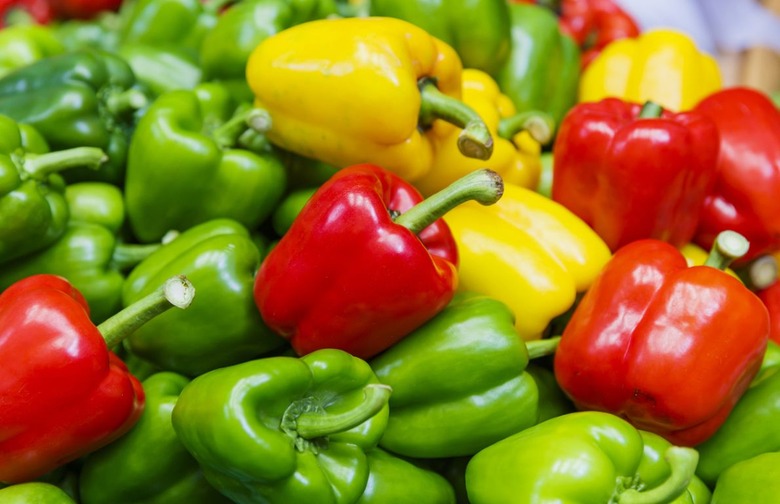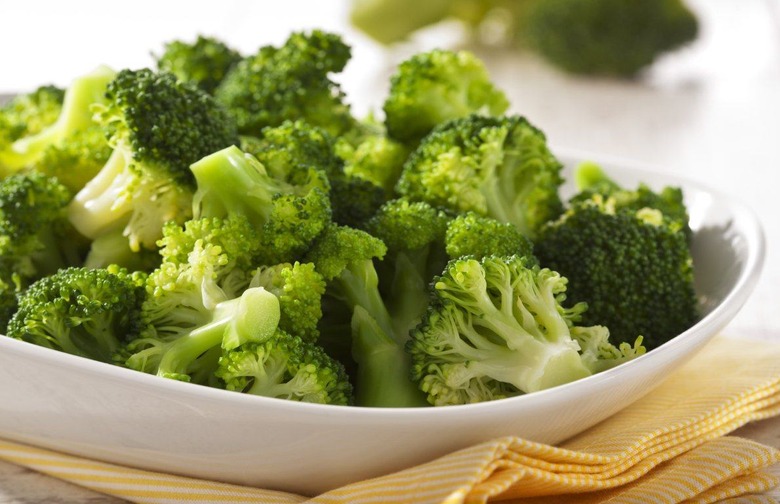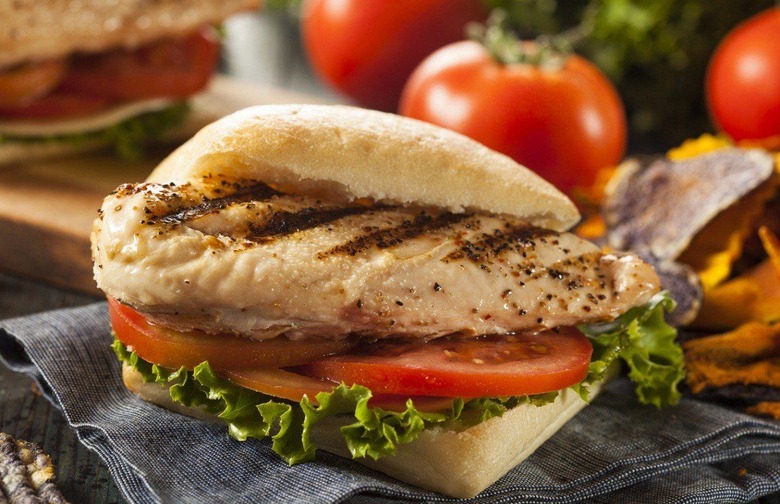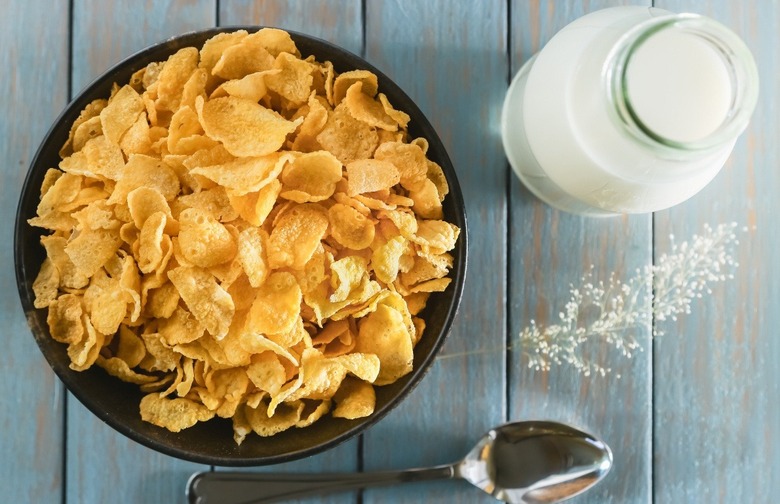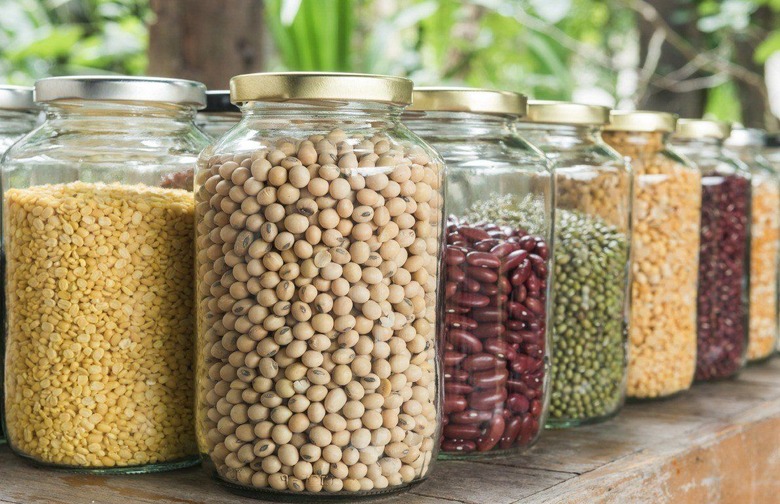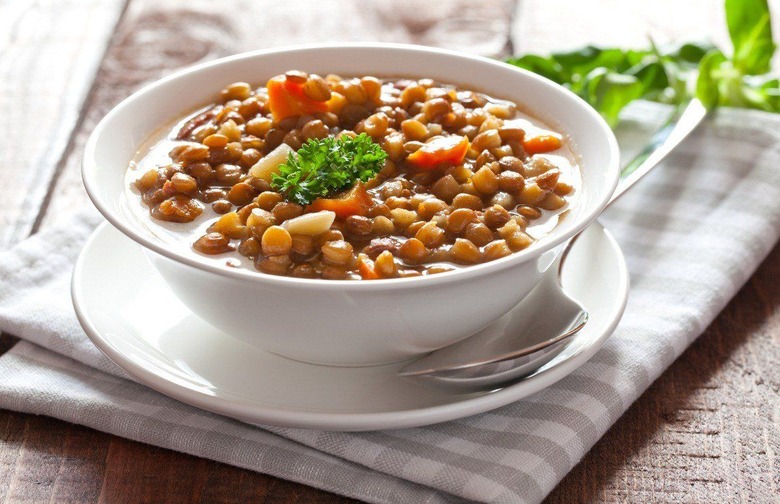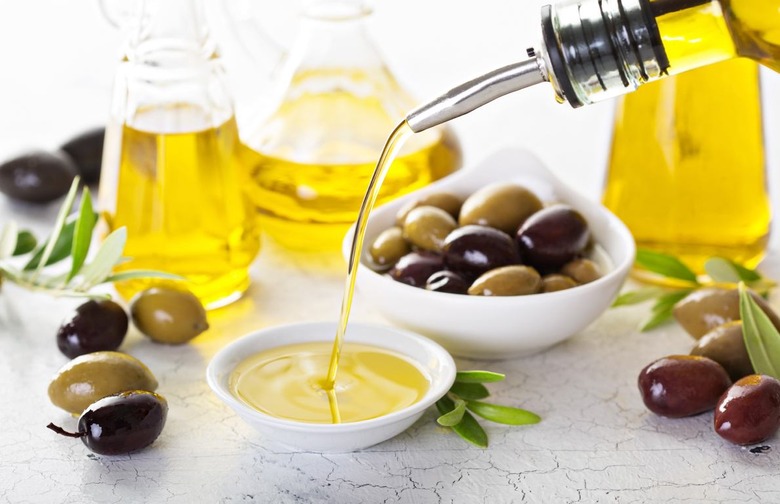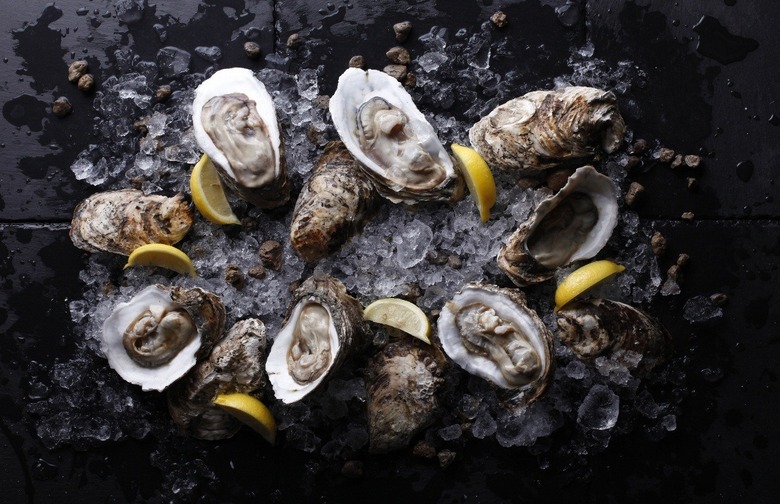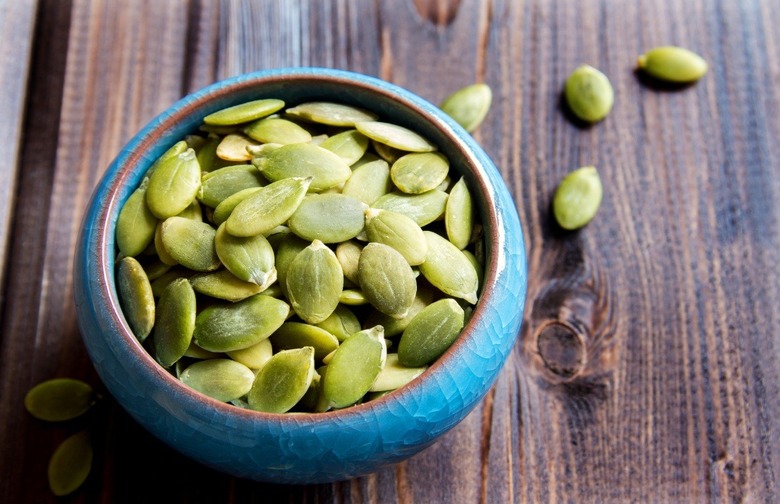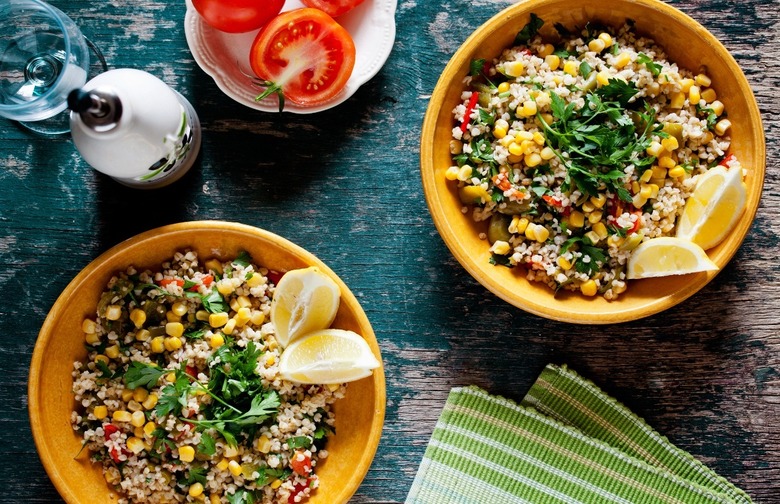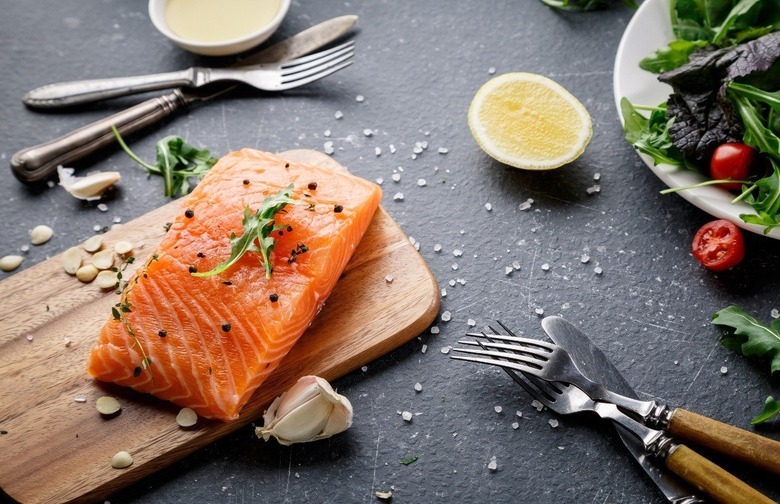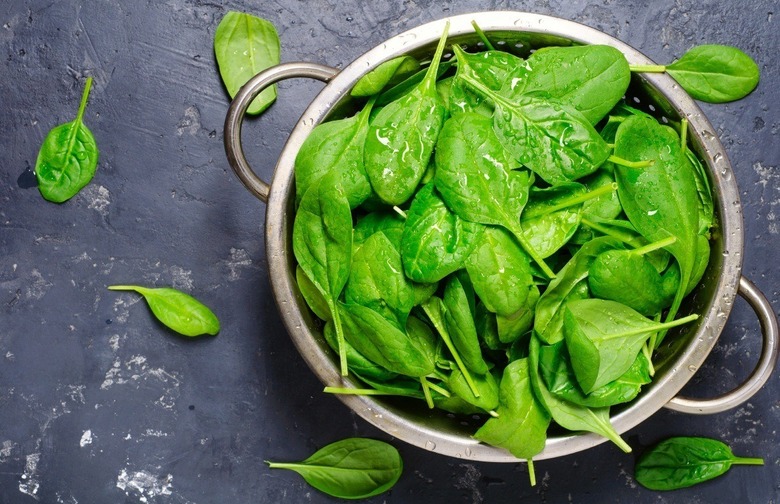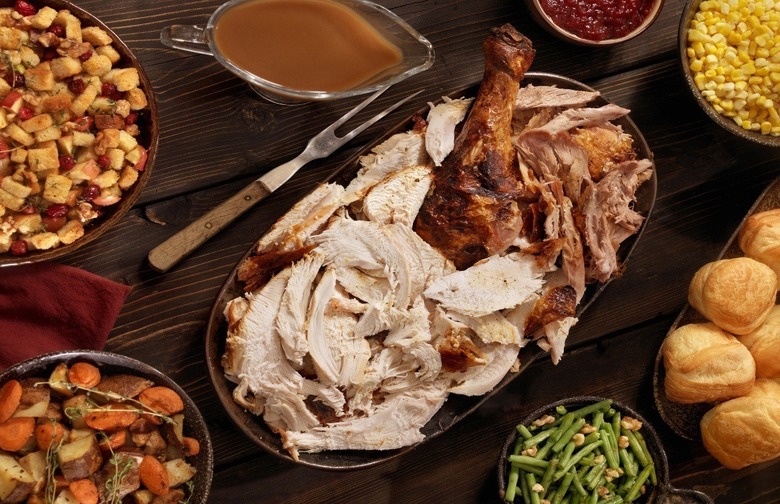These 15 Foods Might Make You More Fertile Slideshow
During menstruation, women deplete their iron stores as they lose blood, but when trying to conceive it's essential to maintain healthy iron levels. Vitamin C, which is found in oranges, broccoli, and bell peppers, helps the body absorb iron and keep levels stable.
Broccoli
Nobody is suggesting eating a bowl of steamed broccoli immediately before trying to conceive a baby, but broccoli's vitamin C content proves beneficial for fertility in both men and women by protecting sperm from oxidative damage and by allowing women's bodies to absorb more iron.
Chicken
Besides being an excellent source of protein, chicken also contains a special amino acid, L-carnitine, which is necessary for sperm cells to function normally. L-carnitine was found to assist in normalizing sperm motility, which is a crucial component to male fertility. Spark some romance with one of these 101 best chicken recipes.
Fortified Cereal
Fortified breakfast cereals often contain substantial amounts of folate or folic acid, an important mineral in the development of the baby's brain and spinal cord. Folic acid, the synthetic version of folate found in fortified cereals, may also limit the risk of a premature birth. When selecting breakfast cereal, just make sure to avoid ones loaded with sugar.
Ice Cream
Bust out the spoons and frosty pints of Ben & Jerry's, full-fat ice cream can in fact make getting pregnant easier. Jorge E. Chavarrom, M.D., assistant professor of nutrition and epidemiology at Harvard School of Public Health and author of The Fertility Diet, says that whole-milk products, as opposed to low-fat ones, can help protect against ovulatory infertility. See? Guilty pleasures can be part of a healthy diet.
Legumes
A study out of the Harvard School of Public Health looked at thousands of female nurses trying to get pregnant, and found that infertility was almost 50 percent higher in those women with a greater intake of animal protein. Women who consumed mostly plant-based proteins, such as legumes, were more likely to conceive and had a reduced ovulatory infertility risk.
Lentils
A colossally underutilized food in American kitchens, lentils provide high quantities of fiber and protein, but these pulses are also important sources of folate (folic acid). The body requires a consistent amount of folate throughout the pregnancy — from preconception to birth — because the vitamin helps limit the risk of premature birth and helps with the baby's development.
Milk
There's no food more closely associated with pregnancy and motherhood than milk. Besides being symbolic of fertility and nourishment, milk is a reliable source of calcium — an especially important mineral for a baby's development. If not enough calcium is in the mother's system during pregnancy, the baby's fetal skeleton will leech essential minerals from its mother's bones. One cup of whole milk contains 25 percent of the recommended daily allowance of calcium for pregnant women, which will allow you to stay healthy while pregnant.
Olive Oil
Olive oil is a staple of the Mediterranean diet, and is pegged as one of the reasons for the higher quality of health in that geographic region. Its robust concentration of monounsaturated fats helps reduce inflammation — a bodily response that may interfere with ovulation and conception.
Oysters
Their slimy, sensual texture makes oysters a classic aphrodisiac, and although they won't actually boost male libido, their zinc content helps with male fertility by increasing the production of sperm and testosterone. Try them raw on the half shell, or as the star of one of these seven outstanding oyster recipes.
Pumpkin Seeds
A bloody, rare-cooked steak is obviously dripping with iron, but pumpkin seeds are a less threatening iron-rich food. And unlike steak or other meat products, pumpkin seeds are plentiful sources of non-heme iron (the same iron found in supplements). Women who regularly take an iron supplement have an easier time getting pregnant, according to one study.
Quinoa
Quinoa is a protein-rich complex carbohydrate that should be incorporated into diets in place of simple carbohydrates like white rice or pasta. Complex carbs are broken down into sugar more slowly than simple carbohydrates, which helps keep blood sugar levels balanced. When blood sugar spikes, the body is forced to release extra insulin, which can potentially affect reproductive hormones.
Salmon
The omega-3 and omega-6 fatty acids in salmon help in fertility and pregnancy in two ways: They increase circulation and blood flow to reproductive organs, and they also help with the development of the baby's heart, brain, and eyes. Salmon can assist with male fertility as well, because it contains coenzyme Q10, an enzyme linked to sperm health. Consider these 10 recipes that will have you falling in love with salmon all over again for your next date night.
Spinach
The leafy salad green is a fertility superfood. Spinach is packed with iron, folate, and zinc, three minerals that are essential to any woman trying to get pregnant. A lack of iron may result in poor egg health or lack of ovulation. Spinach is easy to prepare: It can be served raw as a fresh salad, or wilted with some sautéed garlic and red pepper flakes.
Turkey
Turkey is a rich source of lean protein and iron — two important nutrients when it comes to conceiving a child. Studies show that women with higher iron intakes during preconception have a greater fertility rate compared to women that are deficient in iron. Turkey is often discounted as simply a Thanksgiving centerpiece, but the bird can be prepared in almost every style. Check out the 30 best recipes for turkey.
